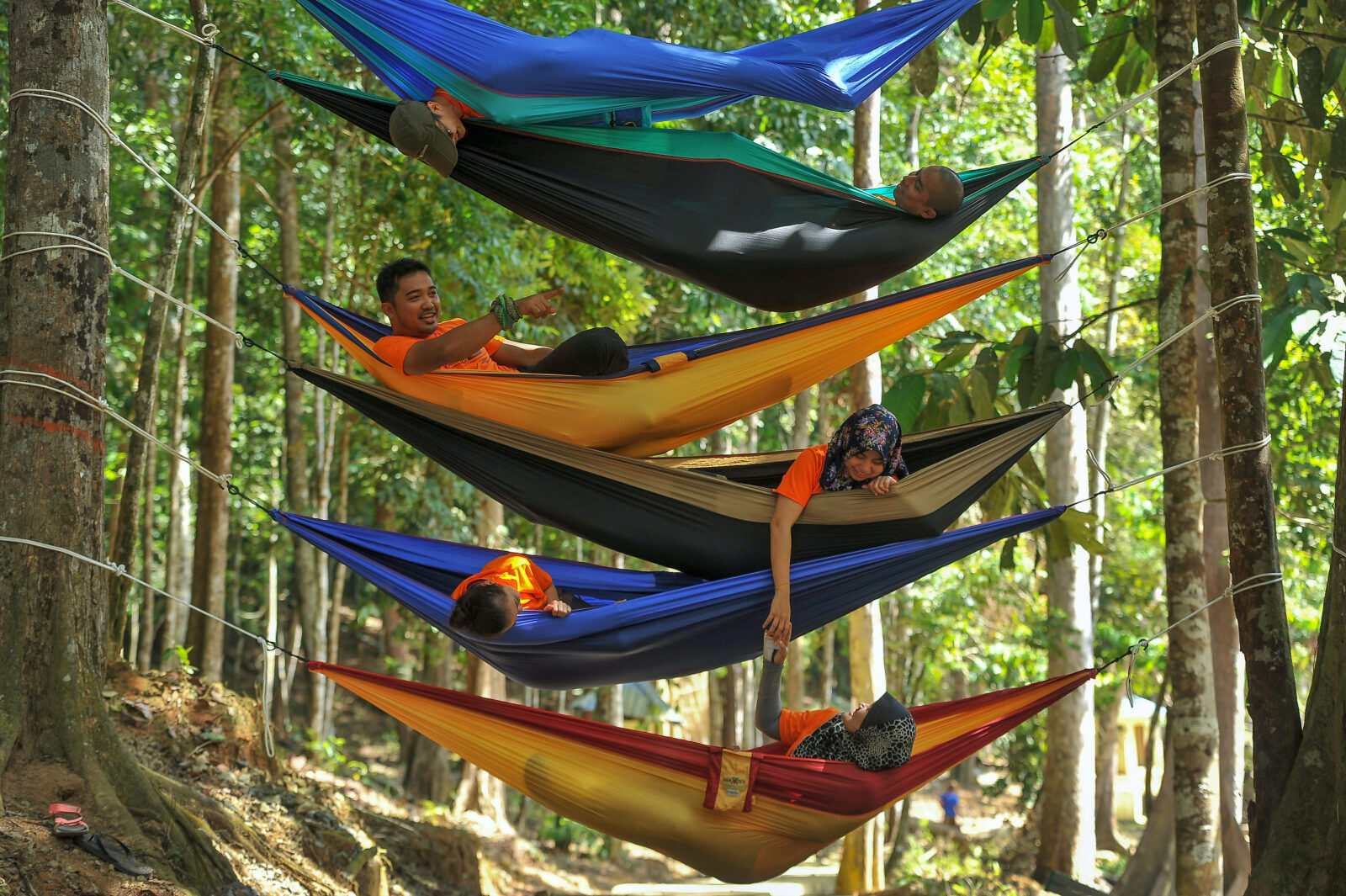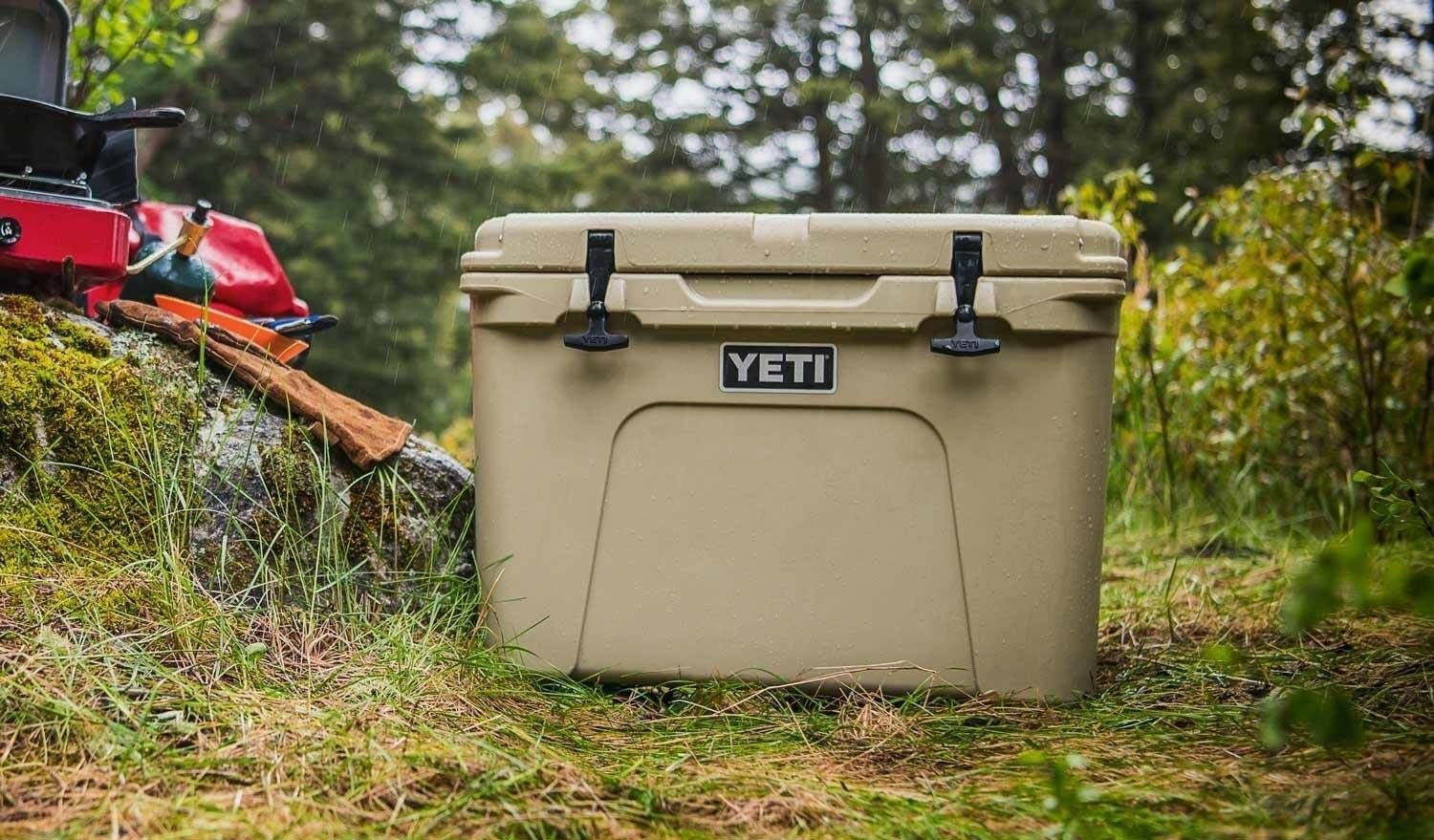Planning a camping trip in bear country and nervous about staying safe during your adventure?
We understand.
Camping in known bear habitat can seem scary at first as a close encounter with a bear is something that most of us would like to avoid. The good news is that it is possible to camp safely in bear country, so long as you come prepared.
Whether you’re a first-time camper or you’re an experienced trekker that’s making their first foray into bear country, we have the tips you need to do so properly.
Up next, we’ll discuss everything you need to know to camp safely in bear country on your next outing.
1. Know your local bear population
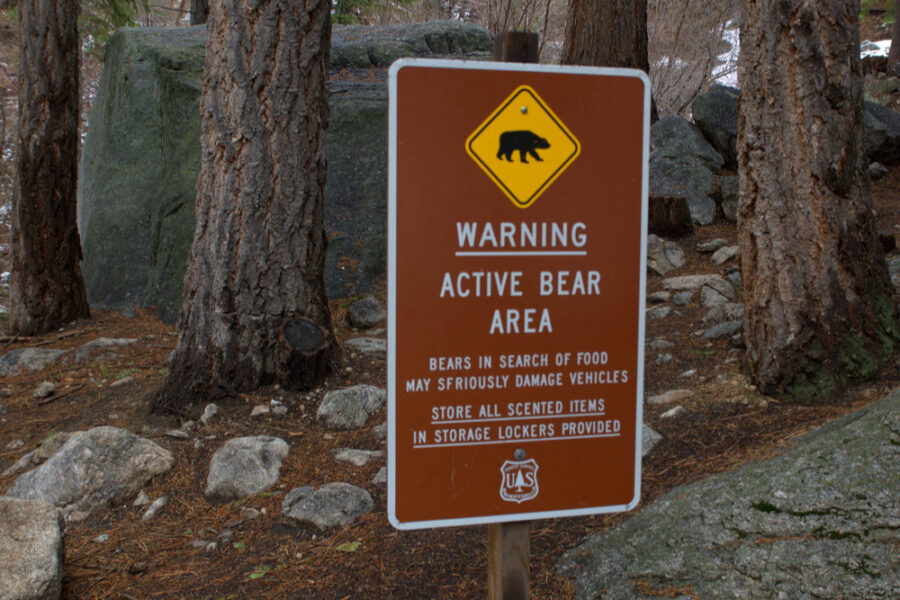
Camping safely in a bear country starts with knowing your local bear population. With 8 different types of bears currently roaming the planet, knowing precisely what types of bears you might encounter on your trek is of the utmost importance as different bear species pose different threats to humans.
Thankfully, it’s often fairly easy to figure out what types of bears you might encounter during your trek since most species now live in very specific areas.
For example, in North America, black bears are found throughout the continent, except in parts of the Great Plains and the southeastern United States.
Grizzly bears, on the other hand, live almost exclusively in the northwestern part of the country. However, there are some populations in the US Rocky Mountains, particularly in Montana around Glacier National Park and in Wyoming around Yellowstone National Park.
Knowing what type of bear you might encounter as you hike is critical because some bear species are more aggressive than others. Once you know what species exist in your hiking area, you can start to create a plan for what you’ll do to stay safe on your trip.
2. Carry a bear spray
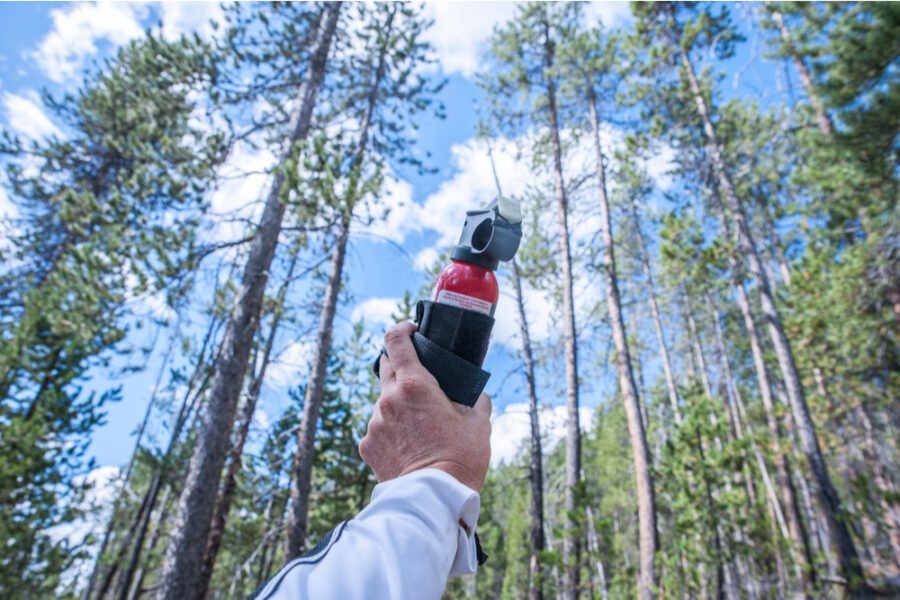
When it comes to self-defense during a bear attack, there’s nothing better than bear spray. While it might seem fairly innocuous, bear spray is a particularly powerful tool for stopping a bear in its tracks.
However, bear spray is only useful to you if you actually have it with you. It won’t do you any good if it’s sitting on your dining room table at home.
Furthermore, the bear spray will only help you in a potentially dangerous bear encounter if your bear spray is readily accessible. Therefore, it’s imperative that all campers in bear country have bear spray easily accessible at all times by using a purpose-built bear spray harness or holster.
Do keep in mind, though, that there are some land managers that do not allow bear spray in their parks. This includes places like Yosemite National Park, so check local regulations before you start your trip.
3. Camp in a group
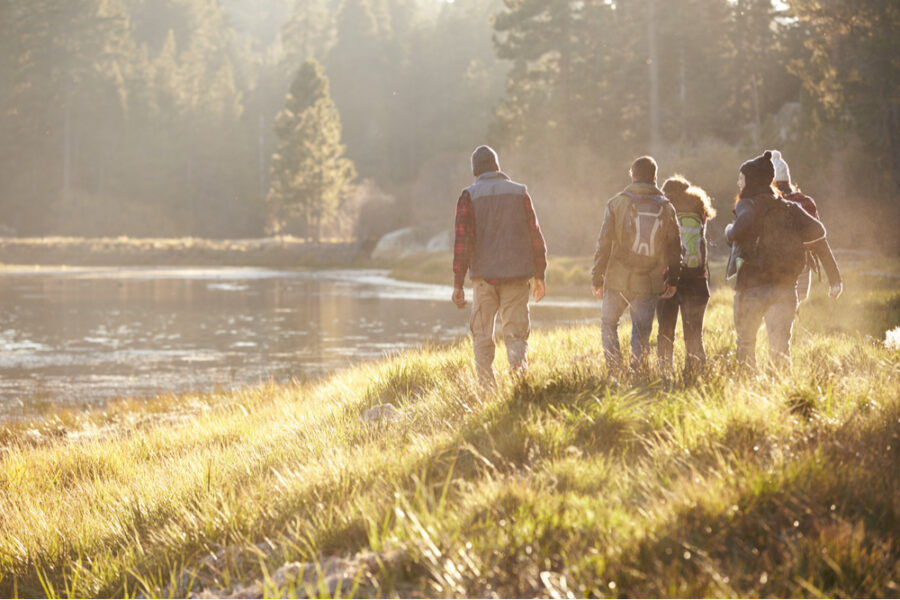
Most bears don’t want anything to do with us humans. In reality, bear attacks are rare, and fatal bear attacks are even more uncommon.
Does that mean that you can let your guard down when camping in bear country? Not at all. But it does mean that you can use a bear’s natural fear of humans to your advantage.
In fact, bears are less likely to approach or attack a larger group of people because the noise of the group tends to scare them off. As a result, many bear experts recommend camping and hiking in a group of at least 3 people, though the more the merrier.
Do keep in mind, though, that the guidance of traveling in a group of more than 3 people still holds when you’re at your campsite. Since bears are more likely to approach your campsite in search of food, it’s best not to wander off on your own at camp when in bear country.
Read More : How to Plan A Successful Camping Trip with Friends
4. Secure your food at night
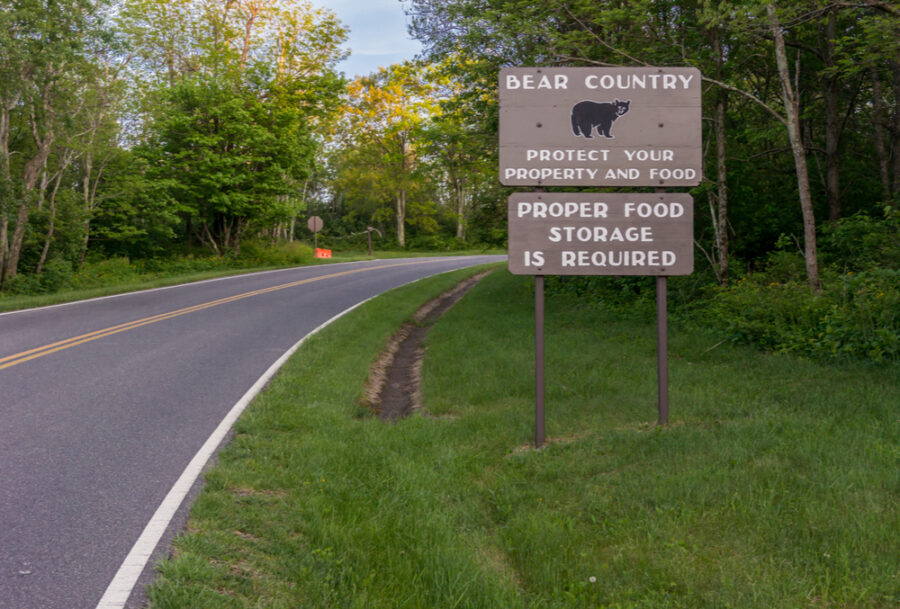
The vast majority of human-bear encounters happen because the bear in question is hungry and is in search of food. Therefore, securing your food and garbage properly at night is essential if you want to lower your risk of a bear attack.
In general, there are a few commonly accepted ways to secure your food in a bear country. These include using purpose-built bear canisters or bear-proof coolers, hanging your food from a tree (called a bear hang), or using special bear-proof lockers.
However, the majority of camping areas in bear country have their own rules about how you should secure your food at night. For example, campers in Rocky Mountain National Park usually have to keep their food in bear boxes at night.
So, always follow local regulations when camping.
5. Don’t bring scented items into your tent
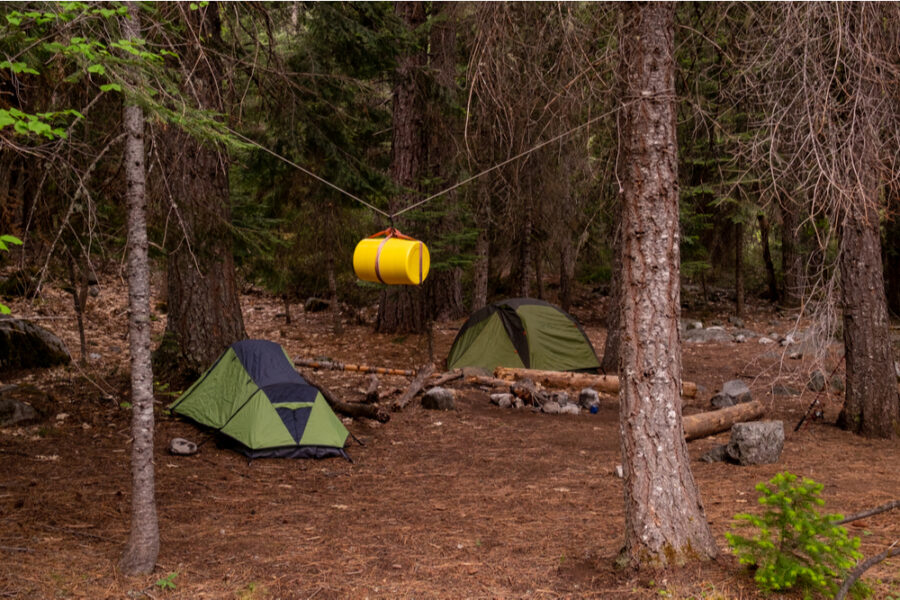
In addition to securing your food at night, campers in bear country should be mindful that they’re not bringing any highly scented items with them to their tent.
The most common scented items that campers might have include toiletries, like deodorant and toothpaste. Like food, these scented items can also attract bears to your campsite.
So, it’s generally best to pack them in your bear-proof container at night to prevent a curious bear from sniffing around your campsite.
Read More : Tent vs Hammock – Which One to Use for Camping?
6. Set up a proper bear camp
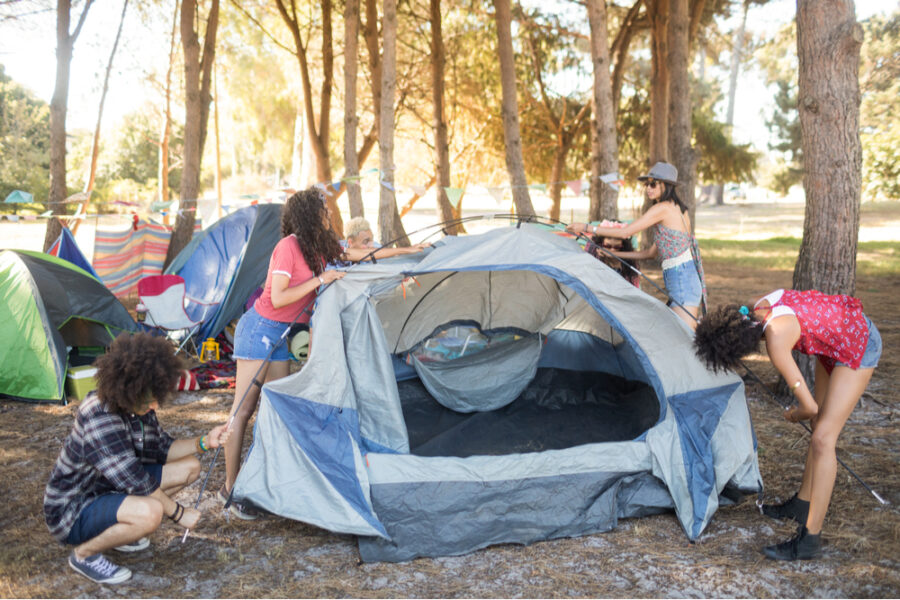
When backpacking in bear country, it’s important that you take a few extra precautions to prevent a hungry bear from wandering around your campsite at night. In particular, backpackers are highly encouraged to set up their campsite in a special way to minimize the chances of an encounter with a bear.
What does this mean in practice?
Well, it usually means that backpackers should establish their camp kitchen at least 300 feet (90 m) away from their tent site. Doing so helps to isolate your tent area from your food and other scented items, which will normally be stored in your kitchen.
This is an important thing to do because bears usually don’t wander up to 4 person tents for no reason. Instead, they’re on the hunt for food. So, if you keep all your food and other food-related items, like your stove and cookware, far away from your tent site, you’re less likely to have a bear stumble into your tent at night.
Read More : 15 Safety Tips Every Camper Should Know
7. Keep a clean camp
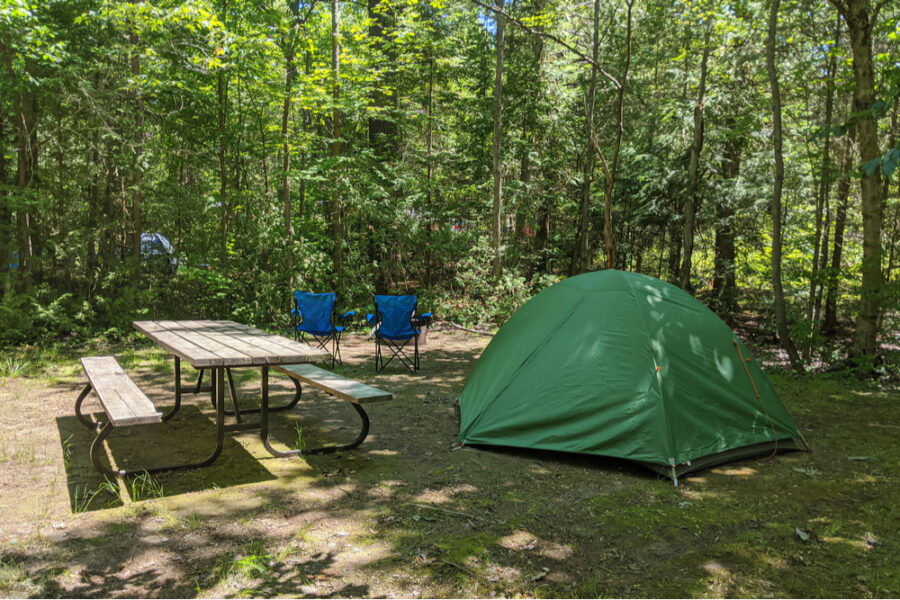
We’ve already discussed the importance of storing all your food and scented items in bear-proof containers at night. However, we’d be remiss if we didn’t also mention the fact that bears are just as attracted to garbage as they are to food.
Campers should strive to keep a clean campsite at all times anyway as a part of Leave No Trace principles. Doing so is especially important in bear country, though, as bears will wander into your campsite to nibble away at that scrap of mac and cheese that you dropped on the ground.
So, before you go to bed, pick up any scraps of food that might be on the ground in your camp kitchen. Wipe off your camp table, too, to clean up any food residue.
The key here is cleanliness, so the cleaner your camp, the less likely that a bear will decide to pay you a visit.
Read More : 11 Campsite Etiquettes Every Camper Should Know
8. Never run away from a bear
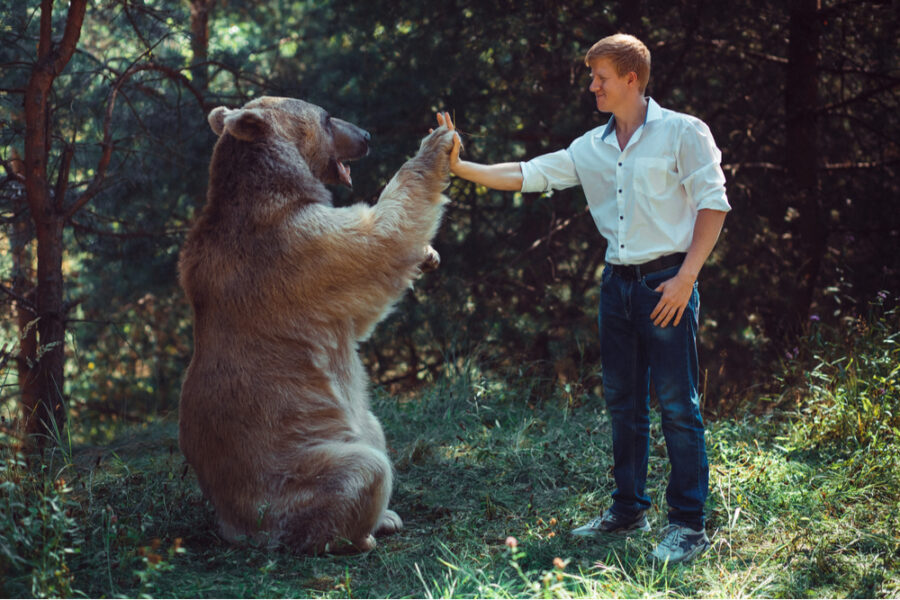
If you do happen to see a bear in your campsite or on the trail, we hope that you simply get to enjoy views of the bear from afar before you continue on with your journey.
Nevertheless, we also understand that it is human instinct to want to run away from a large animal, like a bear. Unfortunately, doing so is likely to turn an otherwise peaceful encounter with a bear into a potentially dangerous situation.
So, never run away from a bear. If you decide to run, you’re signaling to the bear that you’re prey, which is not ideal.
Instead of running, simply back away slowly. Don’t make any sudden moves and wait for the bear to leave so you can carry on with your hike.
9. Make noise on the trail

Like most wild animals, bears do not like loud noises. Thus, making noise on the trail can be a great way to deter a bear.
Now, this doesn’t mean you should bring a speaker and start blasting music into the wilderness (others on the trail probably won’t thank you for that).
But, having a casual conversation with your camping buddies while hiking can, at the very least, let a bear know that you’re in its general vicinity. Doing so will decrease the likelihood of startling a bear, which is something that most of us would rather avoid.
10. Know what to do if a bear attacks
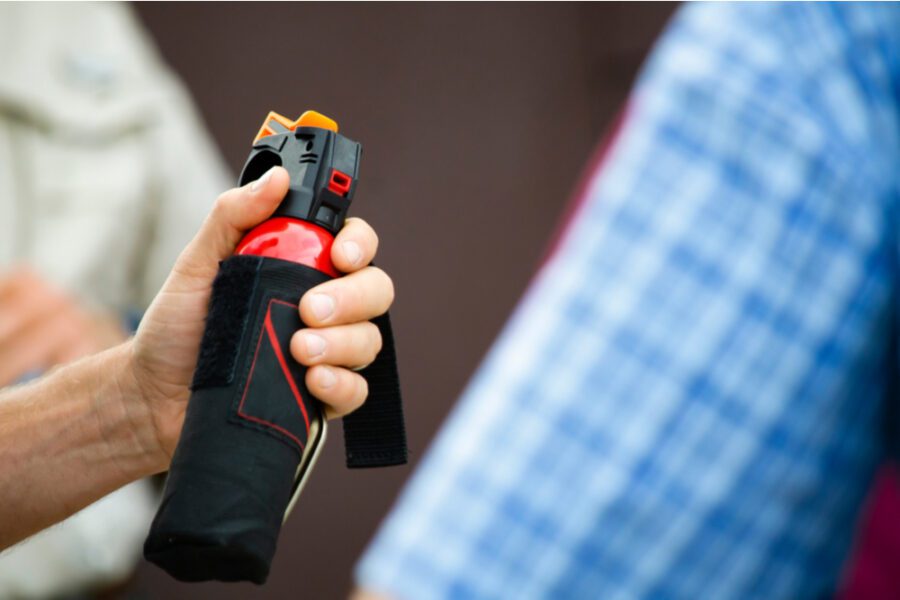
Last but not least, anyone traveling into a bear country should know what to do if a bear attacks.
If a bear charges at you, the US National Park Service recommends using your bear spray when the bear is within about 30 feet (9 m) of you.
Meanwhile, if a bear attacks, your plan of action depends on the type of bear in question. For grizzly bears, the Park Service recommends playing dead. Alternatively, for black bears, it’s best to fight back as these bears tend to be much smaller.
However, if a bear stalks you before attacking, you should fight back. These bears, while rare, are predatory, so defending yourself in these situations is essential.
Gaby Pilson
Gaby is a professional mountain guide with a master’s degree in outdoor education. She works primarily in the polar regions as an expedition guide, though she can be found hiking, climbing, skiing, sailing, or paddling in some of the world’s most amazing places when not at work.
